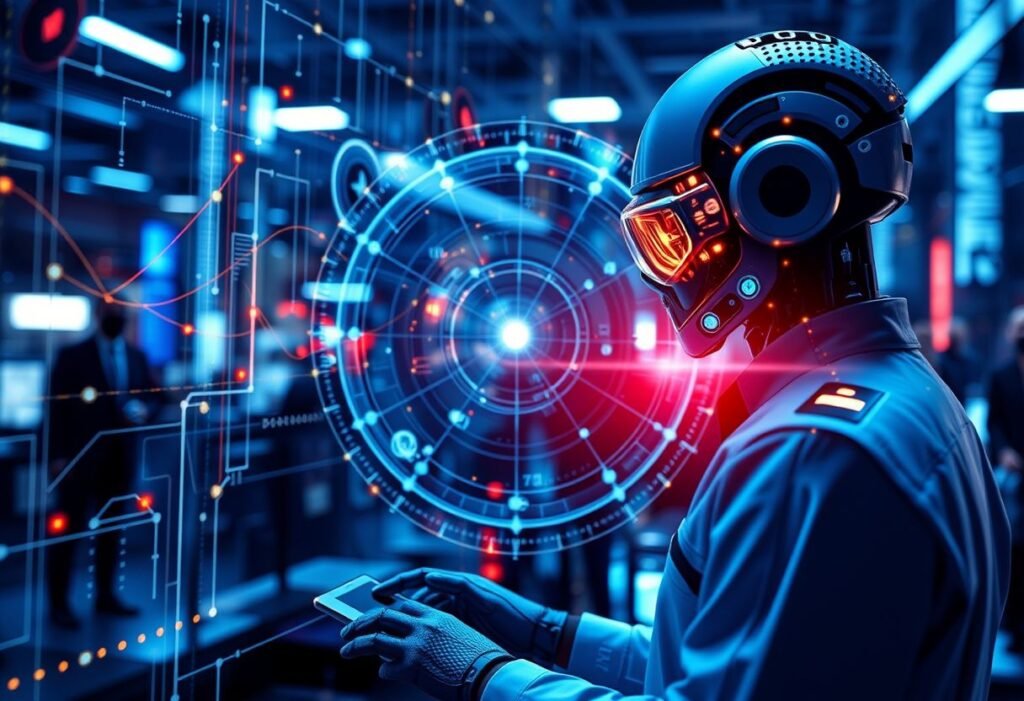The emergence of artificial intelligence (AI) is transforming job market dynamics significantly. As AI technology advances, the innovation landscape shifts, leading to new opportunities and challenges for the workforce. Understanding the implications of AI on employment is crucial for businesses and individuals alike, as it shapes the future of work.
The Transformation of Job Roles in AI Era
With the rapid integration of AI into various sectors, traditional job roles are evolving. Many positions are becoming more dependent on technological skills, while others are being redefined entirely. For example, jobs in data analysis and machine learning are on the rise, necessitating a workforce equipped with advanced technical skills. Conversely, roles that involve repetitive tasks are increasingly being automated, which can lead to job displacement. This transformation challenges workers to adapt through ongoing education and training, ensuring they remain valuable in the ever-changing job landscape.
The Creation of New Job Opportunities
Despite concerns regarding job losses, AI also presents a wealth of new job opportunities. As businesses adopt AI technologies, new roles emerge in areas such as AI ethics, algorithm auditing, and AI maintenance. These positions often require a blend of technical knowledge and interpersonal skills, demonstrating the need for a diverse skilled workforce. Companies that invest in training programs for their employees can foster a culture of innovation and resilience, efficiently blending human capabilities with machine efficiency.
Reskilling and Upskilling for Future Employment
Reskilling and upskilling are essential strategies in navigating the AI-infused job market. Employees must be proactive in seeking educational opportunities that enhance their skills and prepare them for AI-driven environments. Organizations play a crucial role in this transition by offering resources and training programs aimed at employee development. A commitment to lifelong learning is key to remaining relevant and competitive in a landscape where technology continues to evolve rapidly.
The Influence of AI on Workforce Diversity
Beyond job roles and employability, the impact of AI extends into workforce diversity. AI can help mitigate biases in recruitment, promoting a more inclusive hiring process. However, it can also perpetuate existing biases if not implemented responsibly. Companies must ensure that AI tools are designed and monitored to help achieve greater diversity and inclusion within the workplace. This includes actively seeking to eliminate biases in data sets that train AI, leading to fairer hiring practices.
AI’s Role in Enhancing Productivity and Innovation
AI technologies can significantly enhance productivity by automating routine tasks and freeing employees to focus on creative and strategic aspects of their roles. Organizations that effectively integrate AI can drive innovation by enabling teams to work more efficiently and collaboratively. The synergy between human creativity and AI efficiency can lead to groundbreaking advancements in products and services, ultimately benefiting both businesses and consumers alike.
Looking Ahead: The Future of Work in an AI World
As AI continues to reshape the job market, understanding its long-term implications is vital for all stakeholders. Workers must embrace change and harness the strengths of AI technologies to enhance their careers. Employers, on the other hand, should recognize the importance of fostering a supportive environment that encourages continuous learning and adaptation. In conclusion, the future of work will be defined by a harmonious relationship between humans and AI, where both entities coexist and thrive.
Disclaimer: This article is for informational purposes only and does not constitute professional advice.





















